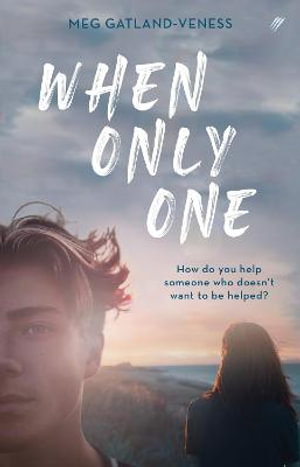When only one by Meg Gatland-Veness

The setting of a 1987 coastal community unveils life for teens who love the surf and training for Ironman competitions. But within the idyllic setting there is a disaster waiting to happen. Sam lives in a caring family as the eldest of five sons. His mother is inspired by her Catholic faith to be benevolent and generous to people in need, and his father is hard-working but exhausted due to his long commute. Some of Sam’s friends from school are also involved in surf training, but it is Emily who is his oldest friend, even though they have been estranged for some years. When Emily seeks him out because of her need to escape her dysfunctional family circumstances he is thrust back into her life, but it seems she only wants limited help and on her own terms. School life becomes interesting when new girl, Rei, sets Sam’s head spinning. Her social justice focus challenges his status quo thinking. Sam and Rei’s friendship becomes more intense, and later Sam discovers that there are more issues in his friendship circle than first thought. His own problems at home are minor in comparison to the difficulties that others in his social circle are facing. These difficulties explode in unexpected ways and are confronting.
This story does not hide that there is trauma coming, as it foreshadows the final moments of a horrific event with each chapter giving a timeline countdown to this event. Quotes from onlookers and participants are included at the beginning of each chapter and these are an almost light and ill-informed signpost to the coming trauma. Slowly we travel with the lead characters as the circumstances of their lives progress inexorably towards the distressing event. The story is sad, and yet there are lighter moments scattered through the teen drama. Exploration of sexual experience, examining faith issues, and the challenges of school success and working to save for a car as a symbol of independence are also woven through the story. This story reminds me of Nova Weetman’s Everything is Changed in that we are never unaware that the story will end sadly. Only readers who can cope with the difficult violence of the story should read this book, it is not for the naive. But if it stirs the reader to think compassionately about the struggles some teens face and of life in the era before mobile phones. It is worth recommending, but the gritty details of social distress are quite confronting.
Themes: Grief, Poverty, School-based drama, Mental illness, Family dysfunction, Family life - 1987, Violence, Abuse, Murder-suicide.
Carolyn Hull